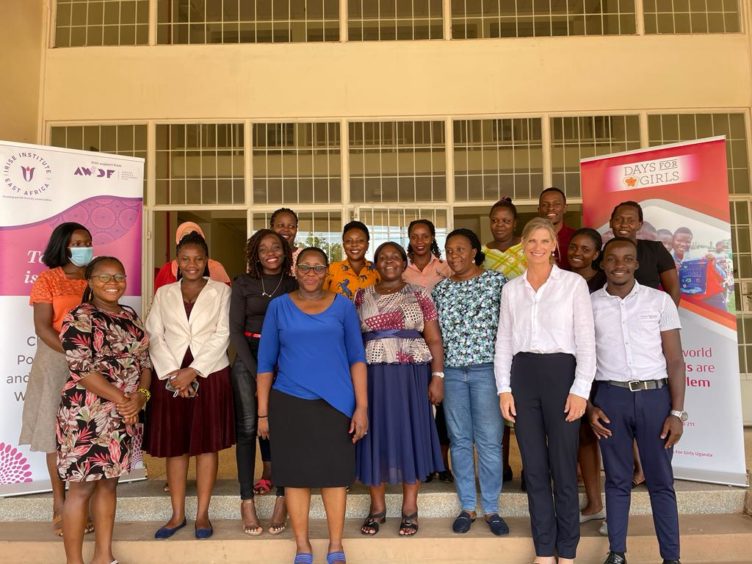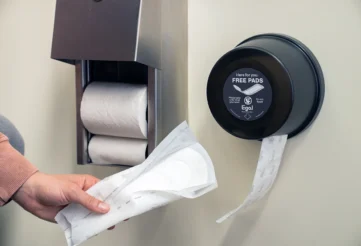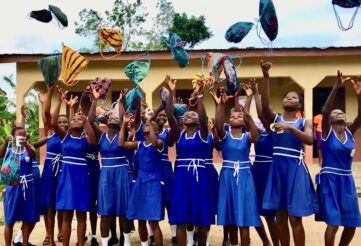Ugandan Government Steps Closer to Implementing Their Menstrual Health & Hygiene Strategy

In April this year, the Ugandan government took an important step forward in advancing the country’s national strategy to eliminate menstrual barriers for women and girls. With support from Days for Girls (DfG), IRISE Institute East Africa, and the African Women’s Development Fund, Uganda’s Ministry of Education and Sport (MOES) convened a two-day technical working meeting focused on getting buy-in, receiving feedback and developing a cost implementation action plan for the National Strategic Draft Plan for Menstrual Health and Hygiene (NSP). This plan will serve as the framework to guide all Menstrual Health and Hygiene (MHH) work done in Uganda.
The MOES knew it needed representation and participation from key Ministries and sectors in order for the NSP to have the greatest chance for successful funding and implementation. As such, stakeholder representatives from the Ministries of Education, Health, Gender, and Water and Environment as well as a few key stakeholders working in the water, sanitation, and hygiene (WASH) and sexual reproductive health & rights (SRHR) sector attended.
This technical working meeting with the MOES helped those in attendance better understand why the NSP is needed and why stakeholder support is critical. To achieve this understanding, the MOES shared findings and recommendations from a Situation Analysis Study from 2020 that focused on MHH Management in Uganda. Findings from this study painted a picture of the struggles women and girls face to manage their menstruation with dignity in non-supportive menstrual environments and how this impacts every aspect of their life (e.g., health, education, psycho-social well being, socioeconomic outcomes, etc). The study further demonstrated how the COVID-19 pandemic significantly marginalized women and girls when their menstrual needs were not met. The data presented also helped stakeholders have increased support for the NSP as they better understood the cross-cutting nature of MHH and how it will impact the goals of their respective departments.
The MOES also realized that, for the NSP to be successful, each ministry and key stakeholder needed to understand their role in securing funding and operationalizing the plan. From the collective feedback received during these meetings, the MOES is developing a cost implementation plan for the NSP action points that capitalizes on stakeholders’ understanding of their integral role in the project.
Each stakeholder left the meetings with an increased understanding of the role their Ministry or department plays in supporting the NSP. Rosette Nanyanzi, Ag., the Technical Advisor to the MOES, who has been the MH champion in MOES leading this process shared, “We shall have [the plan] validated with the different stakeholders but the most important thing is we want the stakeholders and our partners . . . to use the plan as they implement programs on MHH in Uganda.” Because the MOES included stakeholders in these discussions and encouraged their support and feedback, together they created a more holistic NSP that is positioned for success and will have a cascading impact to benefit women and girls throughout the country.
To learn more about DfG's Policy and Advocacy work, please sign up for the DfG Advocacy Newsletter.
Written by Diana Nelson, DfG Global Advocacy Director









